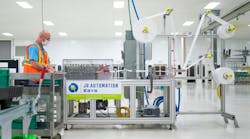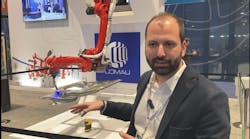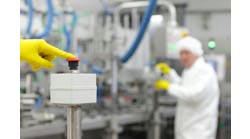Masked plans
The project was aggressive, building an entire mask assembly line capable of producing 50,000 masks a day, and GM needed the equipment running in less than one week.
From the United States, we awaited the arrival of the coronavirus with great trepidation, watching as countries overseas battled what would eventually become a global pandemic. Manufacturers raced to postpone normal operations, keeping workers safe and distanced, but many jumped at the opportunity to produce much-needed equipment and personal protective equipment (PPE).
[javascriptSnippet ]
Automotive industry enters
In late March, General Motors approached Esys Automation, a JR Automation company in Auburn Hills, Michigan, to help produce face masks to combat the COVID-19 outbreak. The project was aggressive, building an entire mask assembly line capable of producing 50,000 masks a day, and GM needed the equipment running in less than one week.
The leadership teams at Esys and JR Automation, a wholly owned subsidiary of Hitachi,, reviewed the request and planned next steps. Within days, the team was assessing the request from GM, designing plans based on readily available parts and releasing them for build as they went.
The next day, JR Automation was working across multiple fronts to implement the plan, while GM was quickly prepping its Warren, Michigan clean room for installation.
JR Automation's engineering and build teams in Nashville and Holland provided input and shared expertise on this type of system with Esys Automation. JR's in-house machining & fabrication department designed and built customized machinery to assemble the masks. Controls and mechanical engineering teams worked in parallel with the supply chain team throughout JR Automation to secure all components, despite many supply chains disrupted by the crisis. Builders at Esys Automation worked around the clock to assemble components, delivering the first equipment to GM, which then produced the first mask in response to the COVID-19 crisis using the line that JR Automation built in six days.
In part 3 of this series of articles, we explore how GE Healthcare and Ford are doing good in Michigan.






